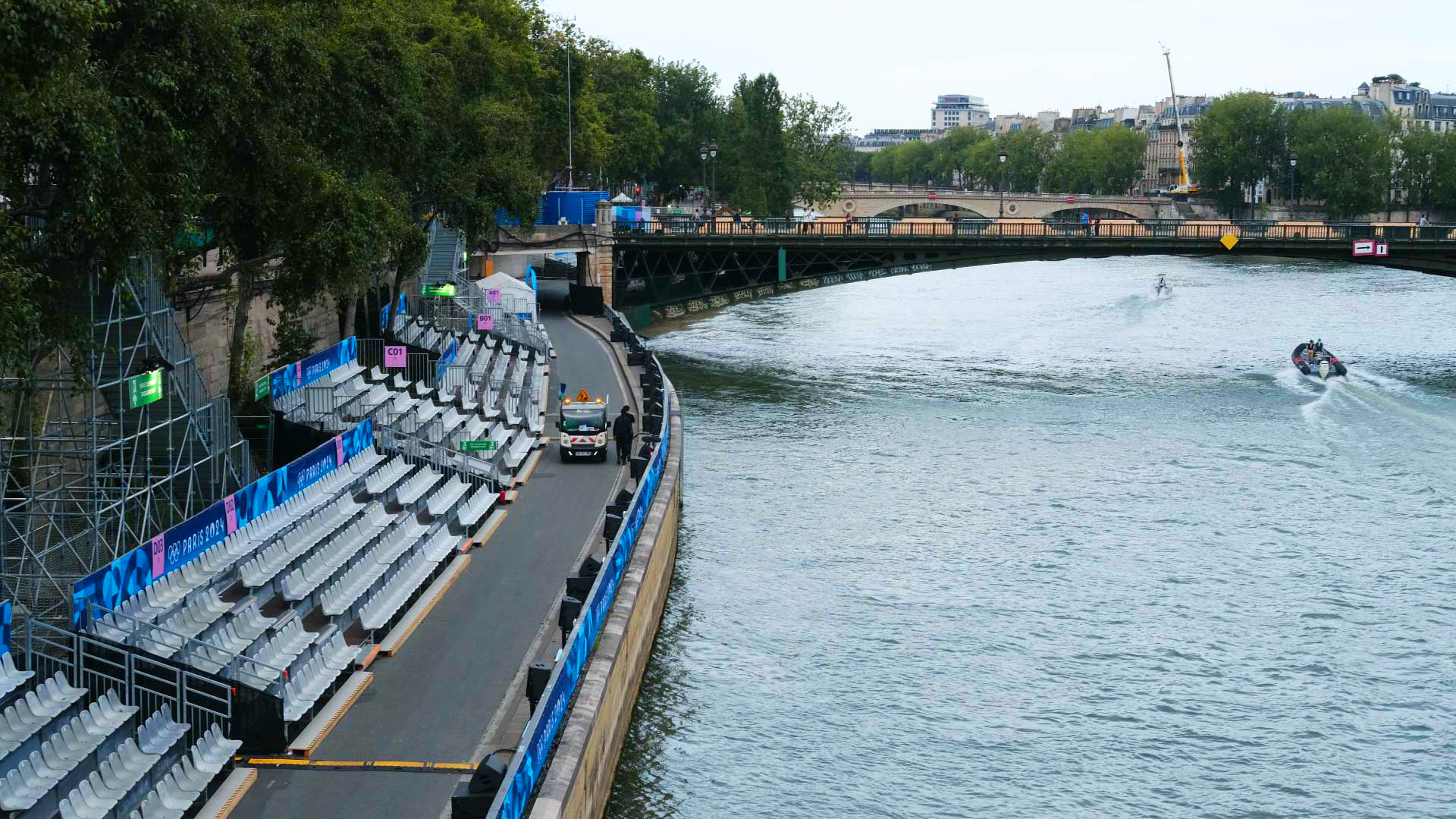Sudden water quality drop in Paris: A risk Hungary could face too
Although water quality standards are the same for everyone, athletes engaging in open water sports are more susceptible to illness than the average swimmer. This difference arises from longer and more intensive contact with the water, according to experts from the HUN-REN Balaton Limnological Research Institute (BLRI). They affirm that the quality of Hungary's largest natural water bodies is good; however, the sudden decline in water quality seen in Paris can happen at any time in Hungary or anywhere else.
In the mid-20th century, European cities began to face overpopulation and struggled to manage the large volumes of wastewater they produced. This led to discharging the wastewater back into the rivers running through the cities or diverting it into other water bodies. Paris experienced a similar situation: since 1923, swimming in the Seine has been banned, with a few exceptions, due to water quality concerns. “This problem has been exacerbated by contemporary issues such as climate change and related weather phenomena, which were not anticipated in the mid-20th century,” said Gábor Vasas, Acting Director of BLRI. He stressed that these challenges are not unique to Paris but affect all of Europe and indeed the entire world.

In recent years, rainfall patterns have changed, sometimes bringing much larger amounts of precipitation within short periods, leading to flash floods. The intensity of these floods can vary greatly, and their effects can extend beyond the immediate destructive power of the water. As seen recently in Paris, even smaller flash floods can wash unwanted organic matter (such as faecal matter) from sewage and wastewater treatment plants into rivers—and in more severe cases, into drinking water. “This can lead to the proliferation of bacteria such as Escherichia coli or other species like Enterococcus in the water, which can cause vomiting and diarrhoea,” added Gábor Vasas.
The increasing impacts of civilisation over the past 10 to 20 years—along with pollution, global climate change, and associated extreme weather conditions—can all contribute to flash floods. Consequently, future Olympic hosts will need to be better prepared than before to face even greater challenges. Gábor Vasas also highlighted that this issue will affect not only competition venues but also various recreational water bodies used for swimming and leisure activities.
He added that the authorities regulate water quality standards very strictly, and these standards apply equally to everyone in the water. However, athletes are more exposed to pollutants because they spend more time in the water and perform more intense physical activity than the average swimmer. Additionally, due to their heavier breathing, they inhale more water vapour.
The case of the Seine highlights a long-standing problem for large cities like Paris, while the situation in Hungary is somewhat more favourable. According to Zsolt Pirger, senior research fellow at BLRI, there has been a significant improvement in water quality over the past decades, particularly concerning the Danube and Lake Balaton, thanks to conscious professional efforts. However, with the Danube, which flows through several countries, we are dealing with "incoming" water, meaning that during a flood wave, we are not solely responsible for what enters the water. In contrast, efforts over the last few decades at Lake Balaton have ensured that a large portion of sewage is kept away from Hungary's largest lake, ideally preventing any discharge of liquid waste into it.

